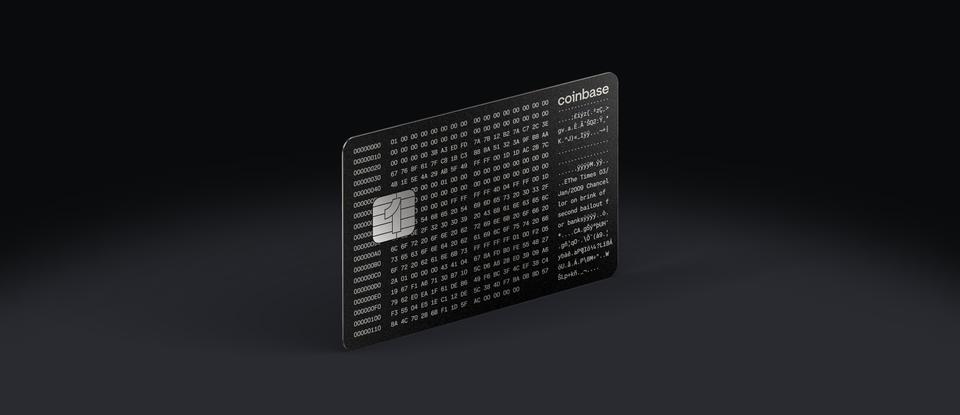Copyright CoinDesk

Coinbase said its Coinbase One Card is now open to U.S. customers who are, or become, Coinbase One members at $49.99 a year, offering up to 4% back in bitcoin on purchases. The update came in an X post from Max Branzburg, head of consumer and business products, who described the product as open to everyone in the United States with access tied to the Coinbase One plan. The card carries no foreign transaction fees and lets users pay their credit card bill either from a linked bank account or with crypto held on Coinbase. Coinbase says bitcoin rewards do not appear on 1099 forms when earned, though taxes may apply if those rewards are later sold. Coinbase has leaned on bitcoin’s origin story to frame the product. The physical card is etched with raw data from the Genesis Block, the first block created by Satoshi Nakamoto on Jan. 3, 2009, and the company’s name nods to the coinbase transaction, the first entry in each new block through which new bitcoin is created and awarded to miners. The pitch centers on a bitcoin-first identity and rewards paid in BTC. Crypto rewards cards are not new. Gemini launched a credit card in 2023 that offers up to 3% crypto cashback on purchases and supports a range of digital assets, including bitcoin, ether and stablecoins. That product is marketed as a convenient way to earn various cryptocurrencies on everyday spending rather than as a statement of bitcoin heritage. Two days before Coinbase’s broad rollout push, Gemini announced a Solana edition of the Gemini Credit Card. The Solana-branded design provides up to 4% back in SOL on gas, EV charging and rideshare up to a monthly cap, 3% on dining, 2% on groceries and 1% on other purchases, with select merchant offers that can reach 10 percent. The Gemini Credit Card has no annual fee, no fee to receive crypto rewards and no foreign transaction fees. Gemini is also introducing an option to auto-stake Solana rewards directly; staking APRs can change and are not guaranteed. The biggest practical difference is how rewards accrue. Coinbase pitches up to 4% back in bitcoin on every purchase for Coinbase One members, while Gemini’s program is category-based: its original card pays up to 3% in crypto and its new Solana edition pays up to 4% in SOL for gas, EV charging and rideshare up to a monthly cap, 3% on dining, 2% on groceries and 1% on other purchases. Taken together, the two approaches serve different preferences. Coinbase’s card is aimed at customers who want a bitcoin-only earn on all spend and a design tied to the network’s first block, with membership at $49.99 a year required for access and the option to pay the bill from a bank account or with crypto held on Coinbase. Gemini’s original card targets users who want exposure to multiple assets with up to 3% crypto cashback, while the new Solana edition layers in category bonuses, rotating merchant offers and optional auto-staking for SOL under a no-annual-fee model. Both position themselves as everyday spending cards with crypto rewards, but the structures differ in ways that will matter to customers deciding between a bitcoin-first setup and category-driven rewards with staking.



